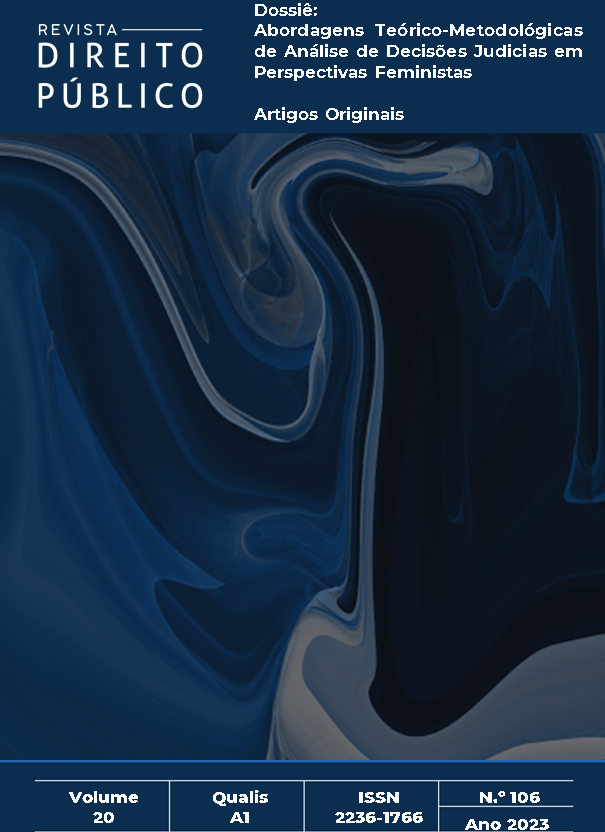Diferença Cultural como "Rótulo"
Percepções do Tribunal de Justiça do Rio Grande do Sul Sobre Maternidades e Infâncias Indígenas
DOI:
https://doi.org/10.11117/rdp.v20i106.7156Abstract
This article discusses indigenous motherhood and childhood, with a special emphasis on adoption cases, in light of the enactment of Law No. 12.010/2009, which amended the Child and Adolescent Statute, providing for a distinct treatment regarding the placement of indigenous and quilombola children in substitute families. Article 28, § 6, ensures that the priority is given to the community or ethnic group of origin for family relocation and the intervention and hearing of representatives from FUNAI and anthropologists are mandatory. Three judgments of the Rio Grande do Sul State Court of Justice that discuss cases of termination of parental rights were analyzed to understand the grounds used for the termination of parental rights and the placement of children in non-indigenous families. As results, four fundamental aspects are noted: 1) the adoption of indigenous children is judged by chambers that deal with Family Law, not Public Law issues (which could encompass indigenous rights); 2) there is an erasure of the ethnicities of indigenous children in the discourse of judges; 3) there is a denial of adoption by indigenous relatives, as the extended indigenous family is not seen as capable of caring for the child, and 4) there is a denial of indigenous motherhood and parenthood, based mainly on criteria of drunkenness and lack of hygiene and food.
Downloads
Published
How to Cite
Issue
Section
License
Copyright (c) 2023 Direito Público

This work is licensed under a Creative Commons Attribution-NonCommercial 4.0 International License.
O(s)/A(s) autores(as) dos manuscritos submetidos concorda(m) com as regras a seguir:
1) Todos os autores e autoras participaram do trabalho, são responsáveis pelas ideias e conceitos nele emitidos e atestam sua conformidade com os princípios éticos exigidos.
2) Todos os autores e autoras concordam com a forma final do trabalho e em ceder os direitos para publicação nos canais de publicação da Escola de Direito do IDP.
3) Todos os autores e autoras informam que o manuscrito é de sua autoria e assumem a responsabilidade pelo trabalho, declarando que a obra a ser publicada não infringe quaisquer direitos de propriedade intelectual de terceiros.
3.1) Em caso de submissão simultânea, além da reprovação imediata do artigo e comunicação ao(s) respectivo(s) periódico(s), a Revista Direito Público se reserva o direito de não receber novas submissões de todos os autores implicados pelo prazo de 2 (dois) anos, contado a partir da data de ciência do fato.
4) Todos os autores e autoras autoriza(m) a edição de seu trabalho e cede(m) à Escola de Direito do IDP os direitos de autor para reproduzir, editar e publicar ou veicular o citado trabalho em qualquer forma midiática, resguardada a autoria, em particular sob forma digital, em arquivo eletrônico online na Internet, bem como armazená-los em seu repositório de acordo com o desenvolvimento do processo editorial. Esta concessão não terá caráter oneroso para a Escola de Direito do IDP, não havendo remuneração sob qualquer modalidade pela utilização do referido material, tendo este o caráter de colaboração científica.












